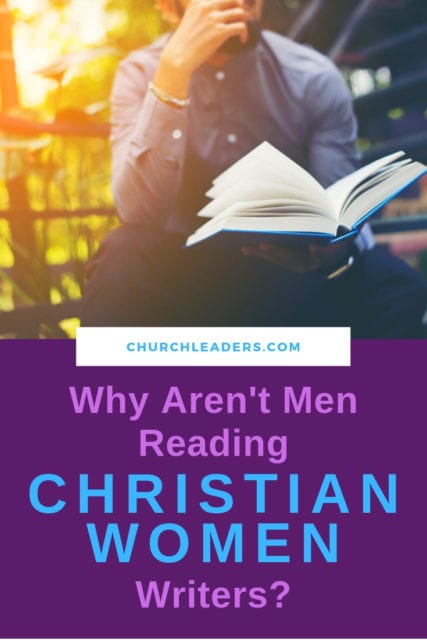Why aren’t men reading women writers? Jen Pollock Michel recently asked the question and it’s rather a good one. Though she provided an early answer (which you can read here) she was clear that her foremost desire was to provoke discussion. Since I spend so much time thinking about Christian books, I thought I’d take a shot at an answer. This is certainly not the whole answer, but it may be a part of it.
I have often observed this about Christian publishing: Men write for men and women; women write for women. In other words, a substantial percentage of the books written by women are for women while a substantial percentage of the books written by men are for both men and women. There are exceptions, of course, but in general, women are far more likely than men to write books specifically for their own gender.
Consider Jen Wilkin, who is considered one of the most prominent authors in the Reformed space. She is a talented writer and skilled theologian. What has she written? Her breakout book was Women of the Word, which tells how to read, understand and interpret the Bible. There are many similar books, and perhaps the main distinguisher between hers and others is the audience. “How can we, as Christian women, keep our focus and sustain our passion when reading the Bible?” Because the audience was women, the cover and the marketing of the book were distinctly feminine. Not surprisingly, it was read mostly by women. After that came None Like Him, a book about the attributes of God. What distinguishes it from other books on the same subject? In part, the audience: The introduction is titled “On Becoming a God-Fearing Woman.” Like Women of the Word, it has a feminine cover and is marketed to a female audience. Her forthcoming In His Image, a book about the character of God, is equally feminine in its look and feel.
Gloria Furman is another noteworthy Christian author in the Reformed space. What has she written? Missional Motherhood, The Pastor’s Wife, Treasuring Christ When Your Hands Are Full, and so on. These are books for women. The audience is female, the covers are feminine, and the marketing clearly meant to appeal to women.
We could find many, many other examples. Of course, it makes sense that women would write about motherhood or other issues specific to women. It makes sense that these books would be feminine in appearance and marketed to their target audience. But books about the attributes and character of God do not need to be written by women for women, do they? Any man could benefit by reading None Like Him, but he probably won’t because he probably won’t buy it in the first place. The cover, the title, the marketing all show that this is a book for women. Many men will read books by women but not books for women.
Let me interrupt the flow of my article a little to state this: Some will answer Michel’s question with the words “complementarian theology.” There are probably some men out there who will not read any book by any woman. If that’s the case, I don’t think they rightly understand complementarian theology. And if that’s the case, I also don’t know any of them. The men I know are very willing to read books by women. But they aren’t likely to read books for women. (Also, a quick look at the bestseller lists will likely show that, even where complementarian theology plays little role, most of the books by women are also for women.)
Back to where I was going: We can easily find some counter-examples of women writing for women. Nancy Pearcey’s books are marketed equally to men and women and, I wager, read equally by both. The cover design and marketing copy are nicely “neutral.” Rosaria Butterfield’s Secret Thoughts of an Unlikely Convert was devoured by men and women alike. Her book, too, is “neutral” in its packaging and marketing and, therefore, appealing to both men and women.
So I think there are a few questions behind Jen Pollock Michel’s question. They may go something like this:
Why aren’t men reading women writers? In part, because many women writers aren’t really giving them the chance. Many female authors are writing books for women, not for men and women. If a man wants to gain a female perspective on the attributes of God, he has to read a book for women on the attributes of God. And that’s difficult not only because the marketing is not making him aware of the book, but because it involves buying a feminine book with application specific to women.
Why are women writing books for women rather than men and women? I expect it’s because publishers are asking women to write books for women. They are not asking women to write books for men and women.
Why are publishers asking women to write books only directed for women, even when the topic applies equally to men and women? Ay, there’s the rub. I think this merits some further thought, and while we may lay the blame in many different places, I expect the most straightforward answer comes down to basic economics. Authors will sell more and publishers will earn more if they hire women to write books for women rather than books for men and women.
Why is that the case? I’m not ready to venture there quite yet…
This article originally appeared here.


